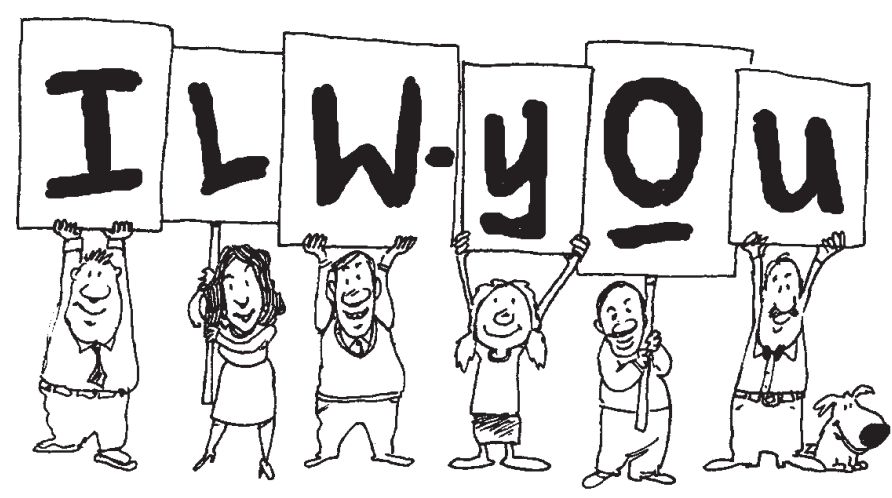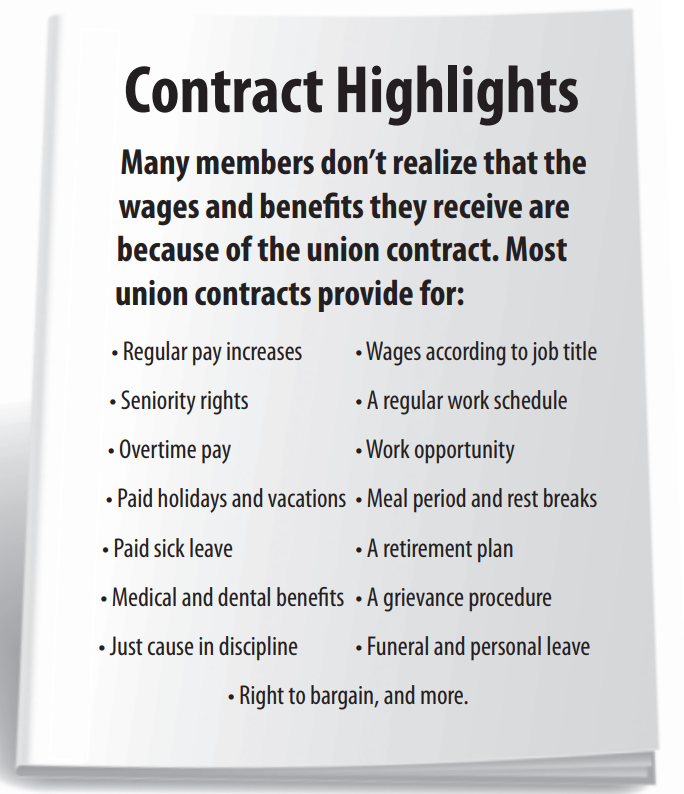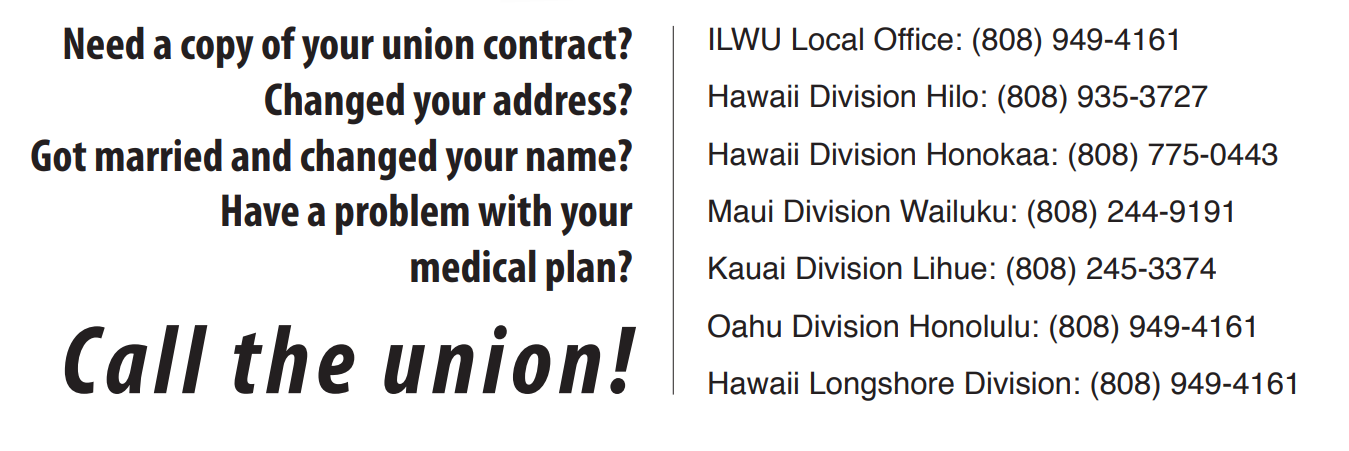
The letters I.L.W.U. stand for International Longshore and Warehouse Union, a union created in 1934 when longshore and warehouse workers on the West Coast of the United States merged to form a single union. In 1937, longshore workers in Hawaii chose to join up with the ILWU, because it was a democratic union that stood for racial equality within its membership. This was important to the Hawaii members who were mostly of Hawaiian and Asian ancestry.
Within a few years, tens of thousands of sugar and pineapple workers also joined the ILWU, attracted by the union’s program of uniting all ethnic groups and its reputation as a democratic union run by the membership. Before the ILWU, unions in Hawaii organized workers along craft or ethnic lines. This divided the working class, and such unions were no match against the powerful employer group that controlled the islands.
With the ILWU, workers finally had an organization with the strength and solidarity that could match the power of the employers. ILWU members won job security and improvements in wages and benefits. With their jobs protected, ILWU members registered to vote, got involved in community affairs, and elected candidates who would work for legislation to benefit working people. This opened the way for Hawaii to develop into a progressive, democratic society.
Your union contract—the benefits are priceless
Your union contract is a written agreement with your employer. It defines your wages, benefits, conditions of employment, and rights. It is enforceable through a grievance procedure and ultimately in a court of law.
Most union contracts are renegotiated every three years, although some contracts run for only one year and others run for as long as six years. How long the contract runs is up to you and your negotiating committee.
The ILWU is a democratic union and members are involved in every step of the negotiation process.
Before the old contract expires, the union members at your company will be asked for their input and ideas on what to change in the contract. This is usually done at a membership meeting, called by the officers of your Unit.
This is one good reason why you should attend union meetings—it’s your chance to improve your union contract.
Y our unit will also select a committee to represent them in negotiations with management.
This committee is usually composed of your elected unit officers, but many units will expand the committee to make sure different parts of your unit are represented.
A hotel unit, for example, might select a committee with members from different departments like housekeeping, food and beverage, maintenance, and front desk.
The Local or Division office will also assign a full-time business agent or officer to work with your negotiating committee as your spokesperson.
During negotiations, unit members may be asked to support their committee by wearing union buttons, attending rallies, and mobilizing in other activities.
When your committee thinks a fair settlement with management has been reached, they must get your vote of approval before the new contract can be finalized.
This happens at a membership meeting where your committee will report on the settlement and where your unit members can vote to accept or reject the settlement.
This is another part of ILWU democracy which requires membership approval for all contract settlements. In rare cases, management may refuse to agree to a fair settlement and your committee may ask you to authorize a strike. Again, ILWU democracy requires membership approval for a strike.
Your union contract is a very important document. You should read the contract and be familiar with its terms.
You should challenge management whenever they violate the contract. You can get a copy of your contract from your unit officers.


